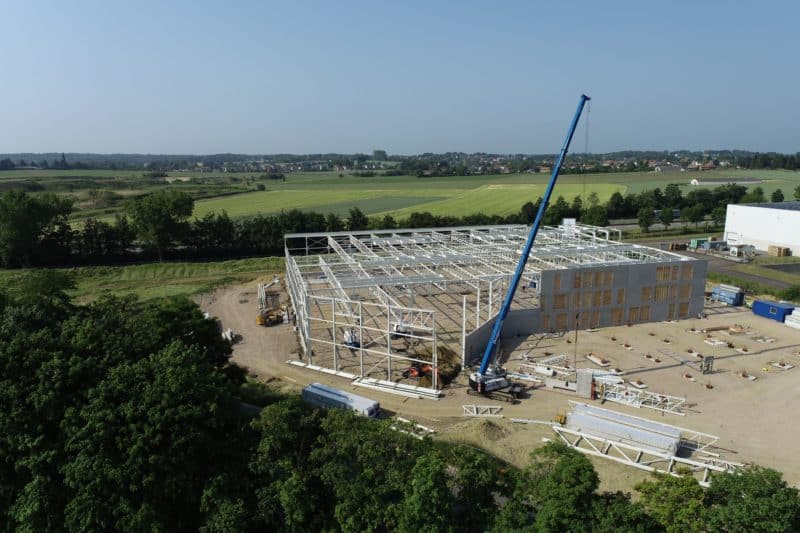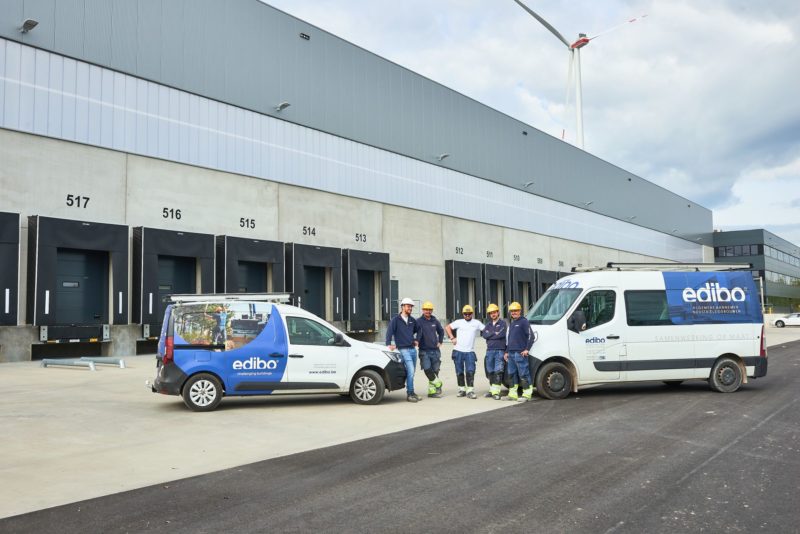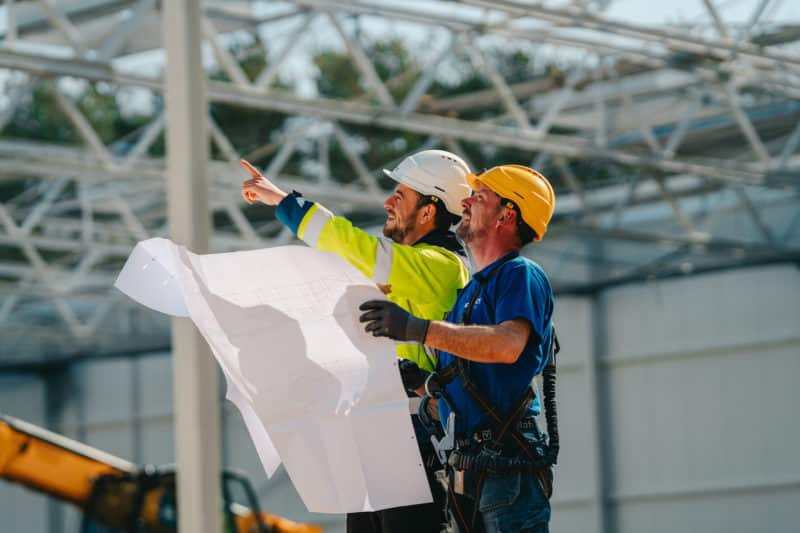From 2.9 million kg to only just 961,000 kg of CO2 emissions on a construction project of about 16,300 m². That was the result of a life-cycle assessment (LCA) recently requested by a potential client. According to Managing Director Jo Boonen, we will see a definite rise in demand for this type of assignment in future. This also instigated moving up a gear or two at edibo.
From nice-to-have to an absolute must
The fact that this isn’t edibo’s first sustainability project has been proven by our substantial efforts in the field of environmental management (ISO 14001), our SDG Pioneership and our experience in BREEAM certified projects.
Ever since the approval of the European CSRD directive (Corporate Sustainability Reporting Directive) in the beginning of 2023, there’s a new important evolution happening in the corporate world. As of 2025, companies will have to report in writing about the impact of their buildings on society, environment and climate of the previous year.
In other words, companies looking to invest in new buildings will now require waterproof guarantees about the sustainability of their future building infrastructures; including ways to measure this in practice.
“A new type of energy label in the making”
“The result of the LCA will start playing an all-dominating role here,” Jo Boonen indicates. “It will specify the durability of the building regarding construction, commissioning and finally demolition. What is the impact of your building over a 60-year timespan? Firstly, with regard to society and the climate, but indirectly also to your daily costs as a company.”
“Therefore, I expect a concrete value to be attached to the result of an LCA in the near future. Just like we know the ‘E-peil’ or ‘K-peil’ (types of energy labels in Belgium for buildings) in the construction industry, we would be able to translate the impact to a CO2 footprint per square metre, which in practice is already incorporated today.”

First promising testcase
How does a calculation like that look in practice? “We presented Montea, building consultant of Blue Gate Antwerp, a brand-new climate-neutral and circular-oriented business park with a detailed life-cycle assessment.”
“This was a pretty conventional construction, which we converted to a variety of versions. That way, we were able to calculate the potential impact of alternative materials, such as steel structure and concrete that were more CO2 favourable, CO2 neutral roof extensions, timber frame construction instead of steel… Resulting in a clear overview of the different potential ecological footprints. This way, we were able to reduce the total CO2 emissions with no less than two-thirds in the most favourable case. From 2.9 million kg to 961,000 kg for a project of over 16,000 m².”
“Slowly evolving to Scandinavian levels”
Right now, our country is not yet able to achieve the levels of the Scandinavian approach in the field of life-cycle assessment in construction. Nevertheless, Jo Boonen remains hopeful: “Contrary to the Scandinavian countries, it is effectively the case that there aren’t many construction products in the Belgian market that promote a highly-favourable LCA output. For now, these are mostly imported. We do notice a new development in the market, moving forward each new day.”
“At edibo, it is clear from the reactions to our LCA efforts that we really need to keep committing to this. Therefore, we have decided to free up more means and staff in the next couple of years. Clients that come to us with their projects know that their sustainability ambitions are in expert hands with edibo.”

Is LCA at the top of your priority list?
Are you totally convinced as well of the added value of a sustainable industrial building? Please know that at edibo we will deploy all our means to minimise the ecological footprint of your future project to the best of our skilled abilities. Additionally, it has been proven that a sustainable industrial building is more interesting in the (rental) market as well.
How can we deliver the envisaged launch of your project? We’d love to hear your story. Contact us for a first exploratory talk.
